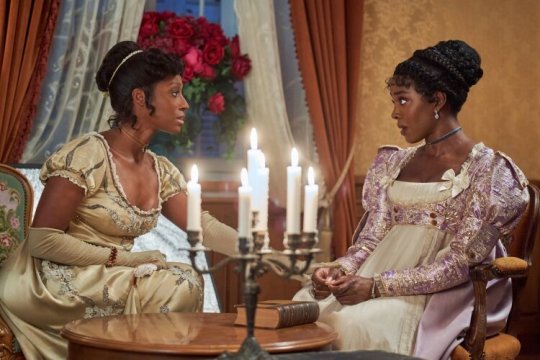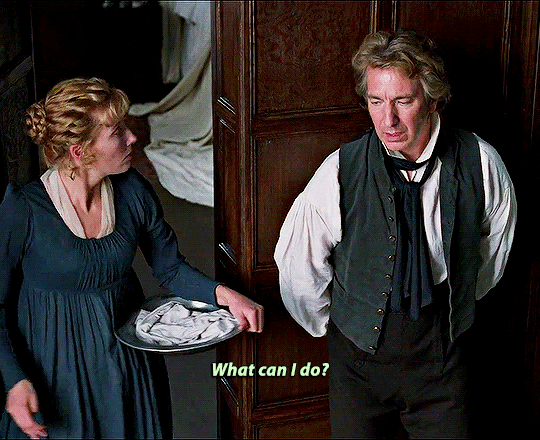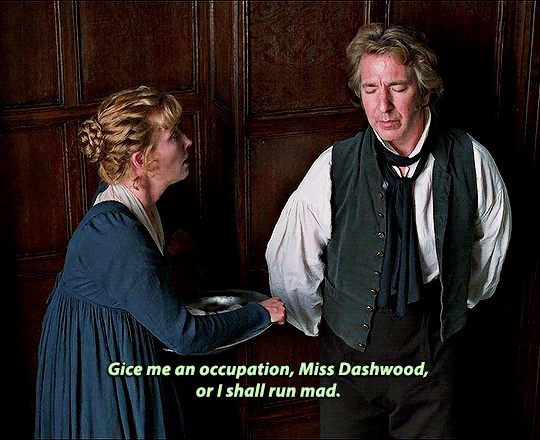#sense sensibility
Explore tagged Tumblr posts
Text

So you'll go your way and I'll go mine, I hope we meet up later on down the line!
189 notes
·
View notes
Text
youtube
AJJ - Sense, Sensibility
I think when I first saw this, YouTube didn’t have ads 😭
0 notes
Text
frankly, the people whose kneejerk reaction to bisan asking for a global strike form the 21st-28th is to say that it takes years to organize a general strike are really unhelpful! no one is saying otherwise, but palestine will be a smoking crater if we all wait for years to do anything - bisan is asking us to do something now. Like are we only supposed to do something if we can do it perfectly??? At some point it���s a valid critique about the work that goes into social movement, and at another point I feel like some people are just trying to absolve themselves from not putting any effort into observing a week of economic inaction.
like idk! I get it, okay! People have bills to pay that don’t magically go away for a strike, we don’t have nearly enough social infrastructure in place to support people to fully stop going to work for a week. But fuck, dude! Stop immediately responding in such a defeatist way! Cut out unnecessary purchases! Try to shop local! Put more effort into promoting Palestinian voices online! Attend a protest, call a local rep, do something!
#like am I going insane#why did I see a post with thousands of notes on it talking about how it doesn’t make sense to be asking for this sort of action#it doesn’t make SENSE?#like god! I hope you’re taking other more sensible courses of action then!#fucks sake man#bisan is living through a waking nightmare and some of you are so pedantic and miserly#palestine#free Palestine
18K notes
·
View notes
Text
Just found Hugh Grant’s Reddit AMA from 2014, featuring such gems as “I love to kill” and “I will pour almost anything down my throat”










Source: Hugh Grant Reddit AMA
#hugh grant#reddit ama#romcom#british actors#bridget jones#sense and sensibility#notting hill#love actually#heretic#the man from uncle#bitter moon#paddington#julia roberts#emma thompson#john cusack#marvel#the hulk#james bond#celebrity interviews#british humour#i am having so much fun with this#thank you hugh
5K notes
·
View notes
Text
These new Penguin First Impressions collection covers were shared on Reddit:






They are just... inexplicable. Especially the Mansfield Park one, but like, all of them.
Edit: also, to the racial diversity, isn't it just false advertising here? If you pick up that copy of P&P expecting a black couple that is not what you will receive.
#jane austen#I hate to tag this jane austen#come on Penguin#pride and prejudice#mansfield park#northanger abbey#sense and sensibility#persuasion#emma#horrible cover art#cover art#and these are official!#Not even bad Amazon remakes
2K notes
·
View notes
Text


I'm so excited for this adaption of sense and sensibility, I've seen little to no buzz about it and if it wasn't for @blackinperiodfilms I would know nothing about it but I finally found pictures on the hallmark website! this will be airing on the hallmark channel saturday, feb. 24th at 8pm est and once I find out if you can stream it, I'll edit this!
6K notes
·
View notes
Text


Kate Winslet & Alan Rickman in Sense and Sensibility (1995)
#sense and sensibility#perioddramaedit#periodedit#filmedit#kate winslet#alan rickman#my loves#**#movies#1k
2K notes
·
View notes
Text



SENSE AND SENSIBILITY (1995) dir. Ang Lee
#sense and sensibility#perioddramaedit#austenedit#emma thompson#hugh grant#gifshistorical#adaptationsdaily#weloveperioddrama#perioddramasource#filmtvcentral#filmtvdaily#filmedit#userlottie#**lottie's gifs#**lottiesedit
5K notes
·
View notes
Text








FILM & TV YESTERDAY, TODAY, TOMORROW: Day 4 – URL ⟶ Elinor Dashwood (+ bonus Edward Ferrars) | Sense and Sensibility (1995)
You talk of feeling idle and useless. Imagine how that is compounded when one has no hope and no choice of any occupation whatsoever.
#filmtvweek24#sense and sensibility#perioddramaedit#austenedit#jane austen#emma thompson#hugh grant#s&s 1995#minee#gifshistorical#adaptationsdaily#filmtvcentral#filmtvdaily#filmedit#tvfilmsource#moviegifs#filmgifs#dailytvfilmgifs#crowleyanthonys#tuserheidi#userrobin#singinprincess#userrin#userabs#useraish#uservivaldi#userfanni#tusermira#tuserhol#this turned into an elinor/edward set accidentally
2K notes
·
View notes
Text
Jane Austen heroines exist on a sliding scale of "You are always right, and no one ever listens to you" (Fanny Price) to "You are never right, and everyone always listens to you" (Emma Woodhouse.)
#Jane Austen#Mansfield Park#Emma#Pride and Prejudice#Northanger Abbey#Sense and Sensibility#Persuasion#Lady Susan
3K notes
·
View notes
Text



I really just want Jason to have cats.
More info about this barebones AU under cut

#dreamer doodles#jason todd#cats are named after the Elinor and Marianne from Sense and Sensibility#cat dad jason
844 notes
·
View notes
Text
Haymitch's love for Katniss was quick, nearly automatic. A volunteer couldn't not be loved by the volunteered. And she was his best friend's child, for all that he had stopped having a best friend when the man laid on his chest to stop him from dying with his family because attachments would hurt him more than they would help him, so he had to. His heart had always been open to her. She just had to walk in.
But with Peeta? Peeta was a surprise. For a minute there, this merchant boy was just another casualty in his long list, was someone would soon join the legion of ghosts haunting his dreams and fended off by liquor. But then the glass got smacked out of his hand. Then he was kind. Then he had an aggressive and effective interview strategy. A flash of someone he had tried his damnedest to forget. And suddenly there was a place for Peeta not just in his mind but in his heart, as well.
Haymitch knew that he would have to be so so lucky and even then he'd only get one of them to survive. And he voice of Wyatt in the back of his head said it would be Katniss. But damn if he didn't adore both of them.
Damn if he wasn't very suddenly ready to add two more posters to his wall.
#one more half sensible tired ass post for the road (night)#idk if this makes any sense lol but i'm leaving it#sunrise on the reaping#sunrise on the reaping spoilers#haymitch abernathy#katniss everdeen#peeta mellark#the hunger games
952 notes
·
View notes
Text




ALAN RICKMAN as Colonel Brandon SENSE & SENSIBILITY (1995) dir. Ang Lee
#colonel brandon#sense and sensibility#austenedit#junkfooddaily#usercreate#filmedit#filmgifs#userstream#alanrickmanedit#alan rickman#dilfgifs#userbennet#perioddramaedit#regencyedit#usersource#actoredit#celebritysource#celebedit#mediagifs#cinematv#filmtvcentral#dailyflicks#filmtvtoday#chewieblog#tvandfilm#1995#90sedit#00s#1990s#gifsbyperioddramamen
975 notes
·
View notes
Text


Alan Rickman as Colonel Brandon in SENSE AND SENSIBILITY (1995) dir. Ang Lee
#sense and sensibility#gifs*#filmedit#filmgifs#userfilm#dailyflicks#useroptional#perioddramaedit#perioddramasource#cinemapix#cinematv#chewieblog#fyeahmovies#doyouevenfilm#adaptationsdaily#dilfsource#dilfgifs#romancegifs#userbbelcher#this is the ideal man
4K notes
·
View notes
Text
One of the underrated things about Pride & Prejudice, and Austen's works in general, is that generally sisters do not compete over men. At one point, Lydia basically says to Elizabeth, "Hey, Wickham is back on the market," but despite her calling him "dear Wickham," there's no indication of ownership. He's available again for any of them and last time he liked Elizabeth best. Zero jealousy detected. And no other sister tries for Bingley after the first night, he's Jane's after the first ball.
In Mansfield Park, a weak sisterly bond is nearly broken over a man and it's portrayed as wrong and even unnatural from start to finish. Jane, Elizabeth, Mary, Kitty, and Lydia would never! Persuasion shows us two sisters infatuated with the same man but it does not affect their love for each other in the slightest. Elinor doesn't even consider competing with Marianne to catch Colonel Brandon as Sir John suggests.
Sisterly love should come before romantic love. Full stop.
#jane austen#pride and prejudice#mansfield park#sense and sensibility#sisterly affection#I love that they don't compete#it's lovely
862 notes
·
View notes
Text


SENSE AND SENSIBILITY (1995) dir. Ang Lee
#filmedit#perioddramaedit#sense and sensibility#userelio#userzil#tuserlari#usernani#userrlaura#tusereliza#usersugar#userzo#tuserlou#usersteen#userhugh#usersjoy#film#by tha
835 notes
·
View notes